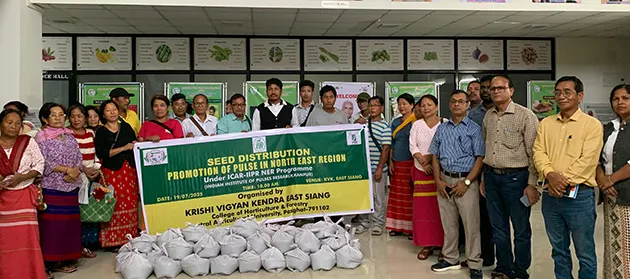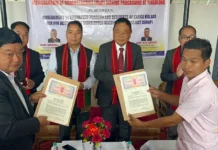PASIGHAT, 19 Jul: A state-level awareness workshop on ‘Contingency planning during deficit rainfall’ was organized by the East Siang Krishi Vigyan Kendra (KVK) under the NICRA project at its office here on Saturday, bringing together agricultural experts, government officials, scientists, and farmers to address the pressing challenges posed by irregular and deficient monsoon rainfall.
The workshop aimed to create awareness among the stakeholders about region-specific contingency plans, sustainable water management, and climate-resilient agricultural practices.
Attending the event, College of Horticulture and Forestry (CHF) Dean Prof A Herojit Singh, College of Agriculture (CoA) Dean Prof Sanjay Swami, East Siang DAO Opang Moyong, and KVK Head Dr Brijendra Singh emphasized the urgent need for proactive planning in light of changing climate patterns.
The resource persons emphasized that farmers must be equipped with timely information and alternative strategies to manage crop production during rainfall deficit, and that contingency planning is no longer optional but an essential component.
Moyong elaborated the district contingency plan and the crops to be promoted on a large scale under the oilseed mission, viz, sesame, rapeseed mustard, and groundnut, which will cover a total of 2,830 hectares of land.
A similar programme will be taken up by the KVK,covering a total area of 240 ha under oilseed and pulse. These crops are being planned to mitigate the shortfall in sowing of paddy due to deficit rainfall.
The programme included presentations of meteorological data, agronomic practices, awareness on less water-requiring crop varieties, drought-tolerant and short duration crop varieties, and the importance of soil moisture conservation.
KVK scientists and resource persons from the CHFand the CoA shared practical insights on how to mitigate the impact of climate change.
During the interaction session, the farmers shared their constraints and challenges faced during rainfall-deficit conditions with the agriculture scientists.
Over 135 participants from different districts attended the workshop, and expressed appreciation for the hands-on information and actionable strategies shared.






